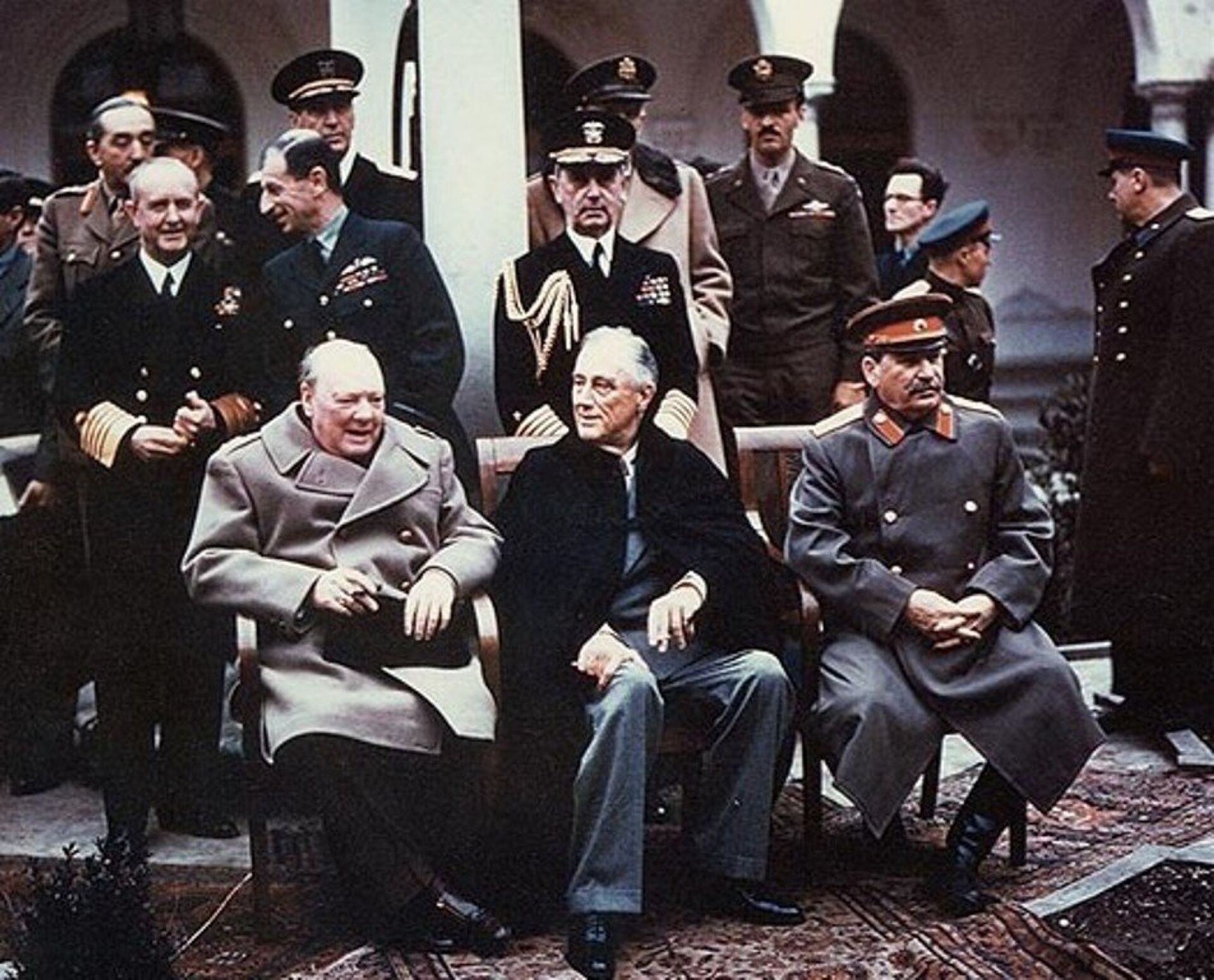Future CIA Chief Dulles May Have Inspired Nazis to Spread Myth of Secret Fortress, Historian Claims
16:56 GMT 03.01.2022 (Updated: 09:22 GMT 18.11.2022)
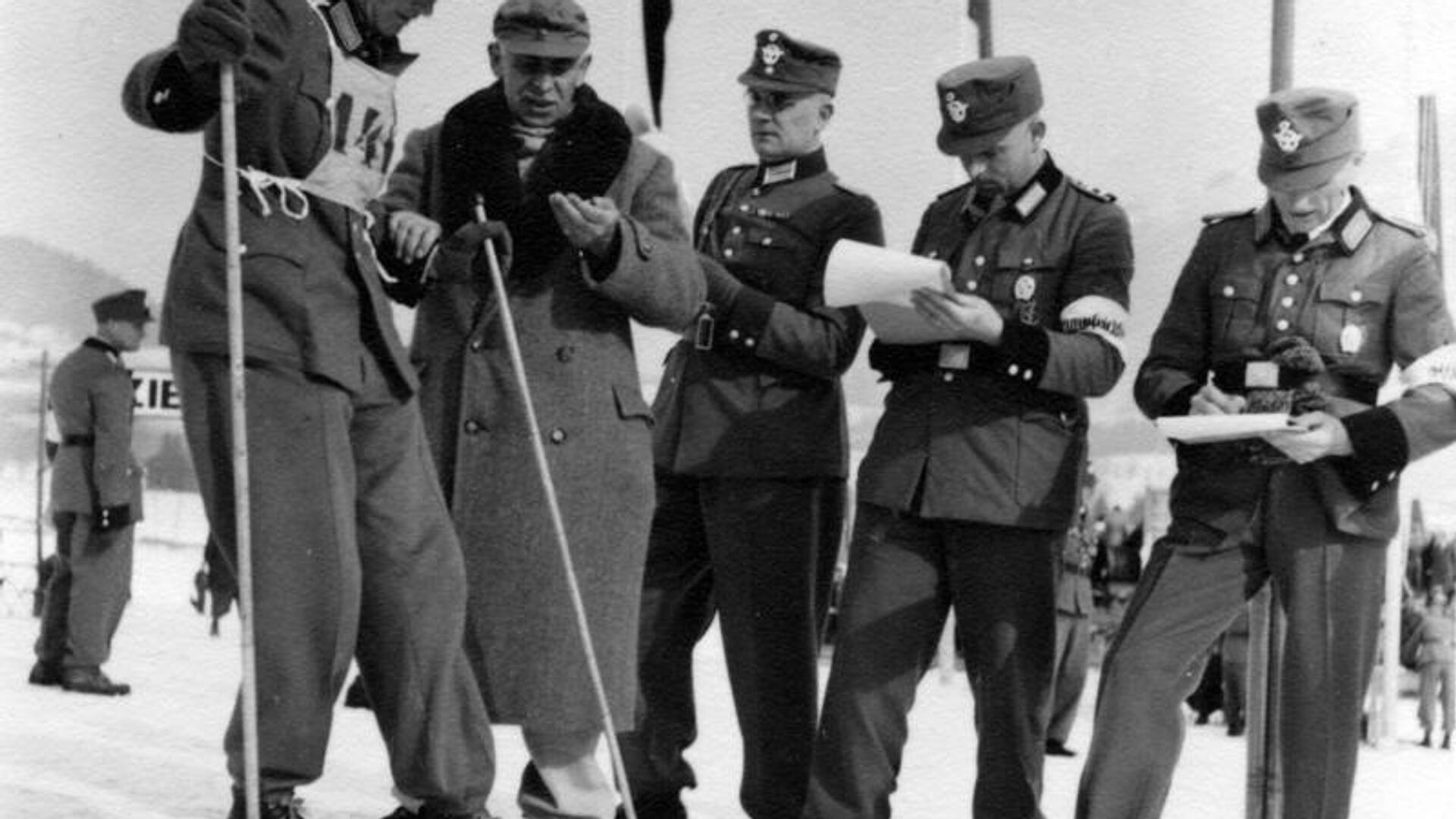
© Photo : Bundesarchiv
Subscribe
Allen Dulles, the US diplomat, spymaster and 1950s CIA director, conducted secret negotiations with Waffen-SS general Karl Wolf in the spring of 1945 aimed at reaching a separate peace between Nazi Germany and the Western allies. Soviet intelligence found out about the talks, and the incident led to a cooling of trust between America and the USSR.
Secret cables sent by Allen Dulles in 1944 using a compromised cypher about a powerful concentration of German troops building up impregnable defences in the Austro-Bavarian Alps inspired the Nazis to spread disinformation that these forces really existed, Thomas Boghardt, a senior historian at the US Army Center for Military History, has revealed after sifting through previously classified documents.
In his new book, ‘Covert Legions: US Army Intelligence in Germany 1944-1949’, Boghardt found that Dulles, who was serving as the Bern, Switzerland station chief at the Office of Strategic Services (the CIA’s predecessor) enraged British intelligence after continuing to use a code known to have been cracked by the Nazis in communications sent in 1944.
“[C]ould you report to the fool [Dulles] who knows his code was compromised if he has used that code to report meetings with anyone, Germans probably identified persons concerned and use them for [disinformation],” one British agent said in a message to his own station chief.
British fears about Nazi disinformation proved correct, and were followed by a months-long military deception campaign by propaganda minister Joseph Goebbels claiming that the Third Reich was diverting tens of thousands of troops and significant material resources to the mountainous regions of Austria and Bavaria to create an Alpine Fortress (‘Alpenfestung’) to tie up Allied forces and prolong the war for months or even years.
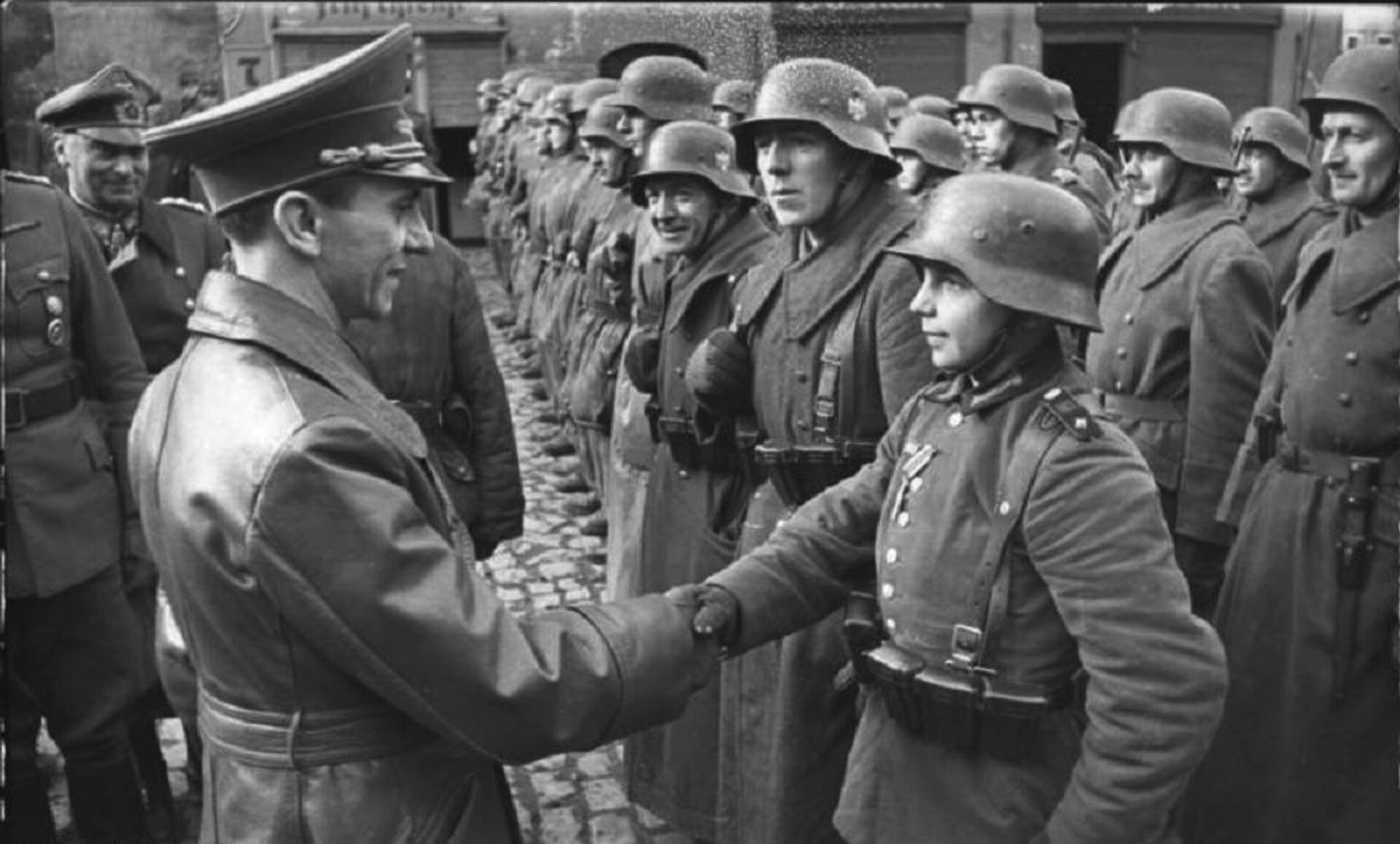
9 March 1945: Goebbels awards a 16-year-old Hitler Youth, Willi Hübner, the Iron Cross for the defence of Lauban
When the allies did reach the Alps in April of 1945, they met almost no resistance from German forces. US Army General Omar Bradley later wrote in his memoirs that the concept of a Nazi Fortress “grew into so exaggerated a scheme that I am astonished we could have believed it as innocently as we did. But while it persisted, this legend of the Redoubt was too ominous a threat to be ignored.”
Boghardt does not believe that Dulles deliberately tipped off the Nazis, telling The Guardian in an interview that the spymaster was “a very capable case officer who excelled at working with human sources,” but was “highly negligent” “when it came to signals intelligence.”
However, Dulles and the OSS Bern station’s actions during the closing months of the Second World War would suggest otherwise. Between February and May 1945, Dulles conducted secret negotiations with Waffen-SS General Karl Wolf known as ‘Operation Sunrise’ on the surrender of German troops in northern Italy to the US and Britain.
Representatives from the USSR were not invited to the talks, but Soviet intelligence picked up on their existence, fueling Joseph Stalin’s suspicions that elements of the US deep state may have been attempting to reach a separate peace between the Western Allies and Germany to allow the Nazis to continue to wage war against Moscow, or worse – to team up with Berlin for an invasion. On 22 March 1945, Stalin wrote Roosevelt a detailed letter demanding an explanation about what was happening at Bern.
On 11 April 1945, one day before his death, Roosevelt replied to Stalin, assuring him that the US would not rest until the Nazis were crushed.
“Thank you for your frank explanation of the Soviet point of view on the Bern incident, which it now appears has faded into the past without having accomplished any useful purpose. In any event, there must not be mutual distrust, and minor misunderstandings of this character should not arise in the future. I feel sure that when our armies make contact in Germany and join in a fully coordinated offensive the Nazi armies will disintegrate,” Roosevelt wrote. Stalin only received the letter on 13 April.
In late April Dulles was forced by Allied Forces Headquarters in Caserta Italy to cut off all communications with German emissaries in Switzerland without Soviet representatives present.
Winston Churchill and the British leaders referred to the Dulles-Wolf negotiations, which the UK also took part in, as ‘Operation Crossword’, and the prime minister complained to Roosevelt about Soviet Foreign Minister Vyacheslav Molotov’s “rude questioning” on the matter.
Formally, Allied negotiations in Tehran in 1943 committed the Allies to the total and unconditional surrender of Germany and its allies as the war’s ultimate goal. However, as the war progressed and it became clear that the Nazis would be defeated, Dulles and others, including Chief of Staff George C. Marshal, sought to find ways to slow the Soviet advance into Europe. In 1944, Marshall proposed reducing Lend-lease aid to the USSR. In the 1944 presidential election, as a compromise to the conservative faction of the Democratic base, Roosevelt picked Missouri Senator Harry Truman as his vice-presidential running mate. One week after Hitler’s invasion of the USSR in 1941, Truman famously proposed that “if we see that Germany is winning we ought to help Russia, and if Russia is winning we ought to help Germany, and that way let them kill as many as possible although I don’t want to see Hitler victorious under any circumstances.”
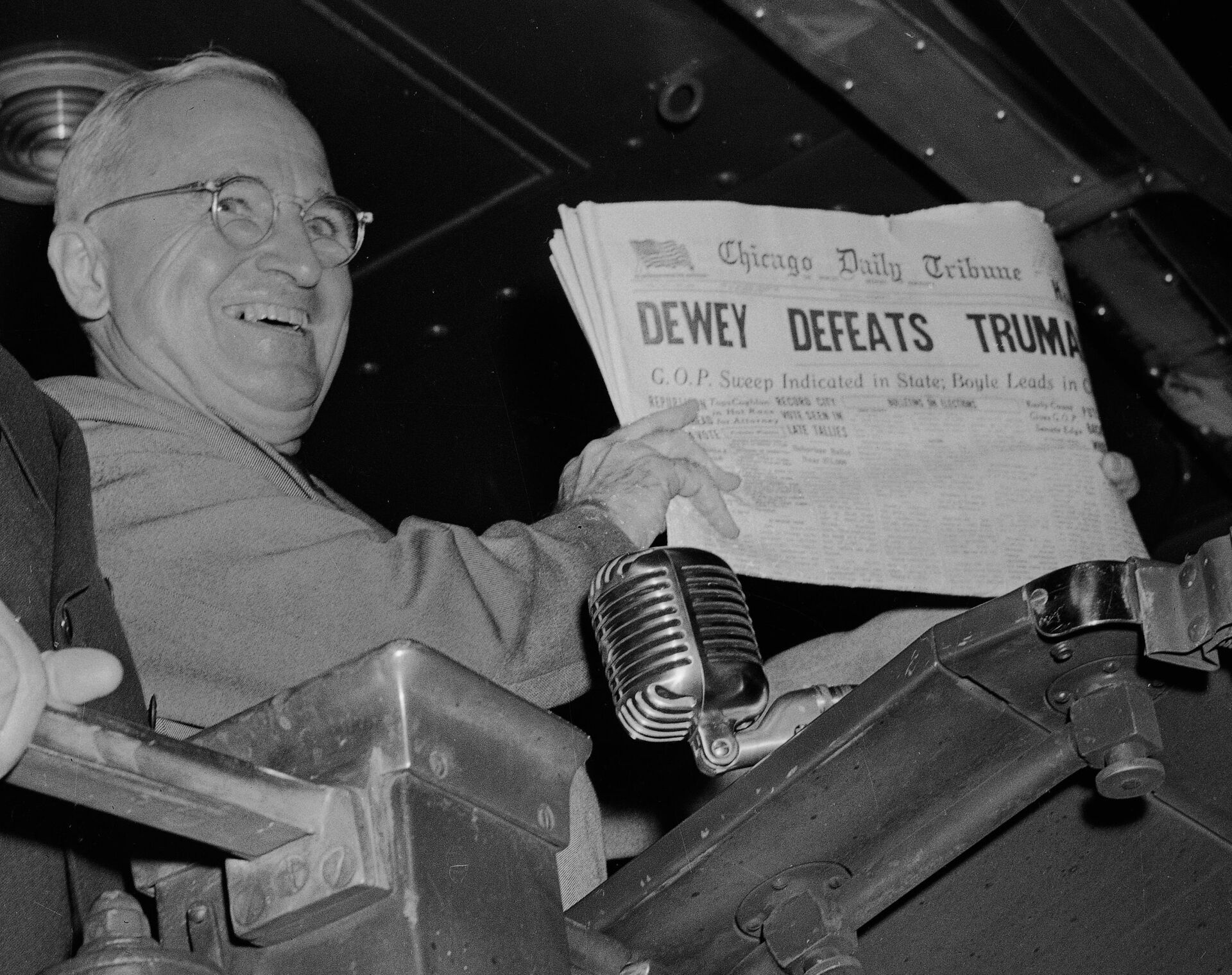
President Harry Truman holds up a newspaper which wrongly reported he had lost the election in 1948
© AP Photo / Byron Rollins
For his part, Dulles spent much of his time in Bern holding informal discussions with German businessmen, politicians and officials on how to prevent a Soviet occupation of Germany and the spread of ‘Bolshevism and Pan-Slavism’ in Central Europe after the war. In November 1944, Dulles received a proposal from Wilhelm Harster, a high-ranking SS officer and Holocaust perpetrator, to start separate peace talks with the Western Allies through Italian industrialist intermediaries.
Hitler’s deputy Heinrich Himmler sought to use the talks with Dulles, as well as connections with the Vatican and the Red Cross, in failed attempts to reach the separate peace. Reich Foreign Minister Joachim von Ribbentrop sought separate negotiations with the Americans through contacts in Sweden, but also without success.
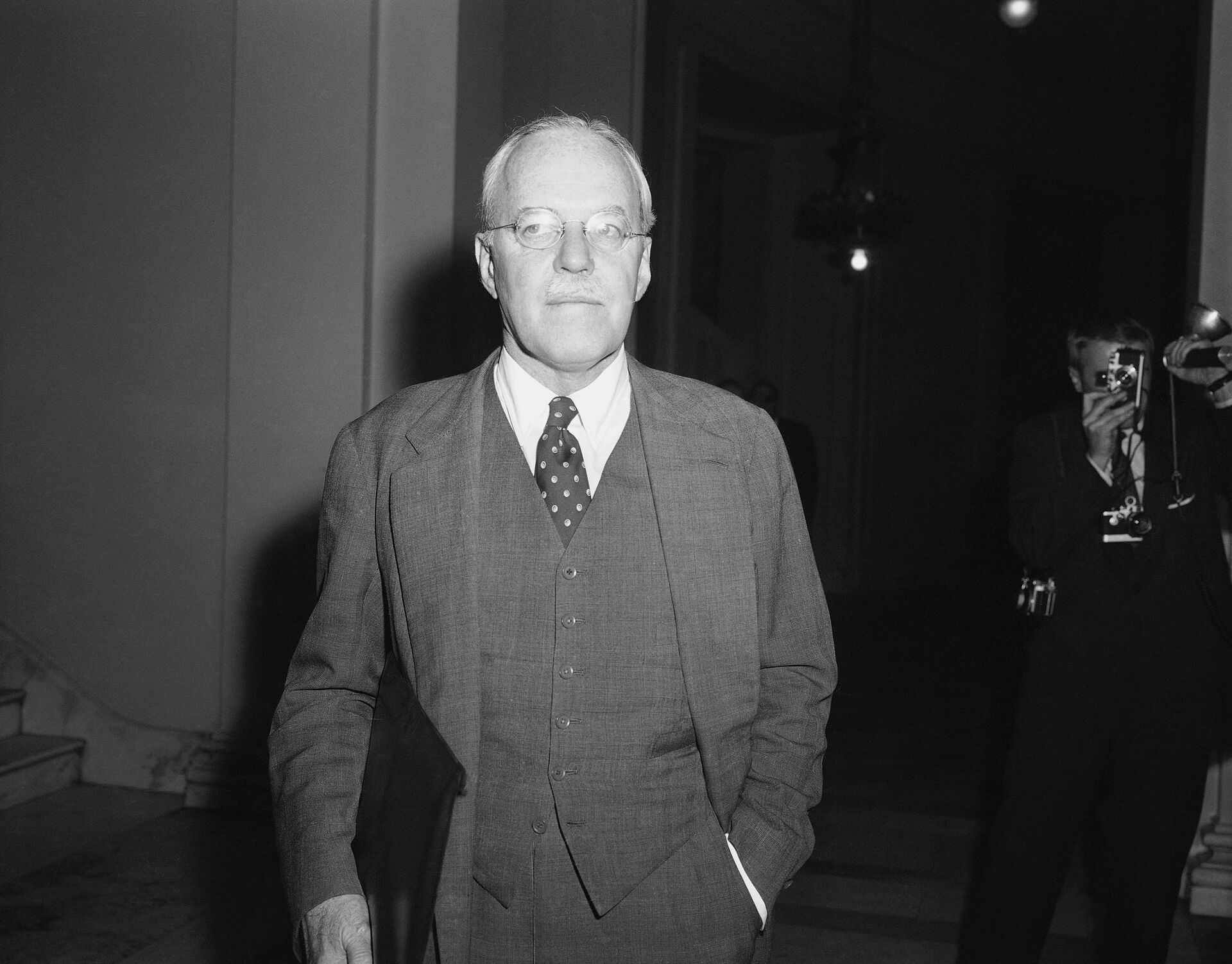
Allen Dulles, director of the Central Intelligence Agency, leaves the hearing room on Nov. 27, 1957, after giving closed door testimony before the senated preparedness subcommittee. Dulles told what Sen. Stuart Symington (D-Mo) called a sad and shocking story of the missile competition with Soviet Russia.
© AP Photo / WCA
After the war, Dulles would go on to serve as deputy director of the CIA between 1951-1953, and as agency director between 1953 and 1961. During that time, he was involved in the coups in Iran and Guatemala and the failed Bay of Pigs invasion of Cuba. President John F Kennedy forced Dulles’ to resign over the Bay of Pigs fiasco. In 1963, Dulles was tapped by President Lyndon Johnson to investigate Kennedy’s assassination.
